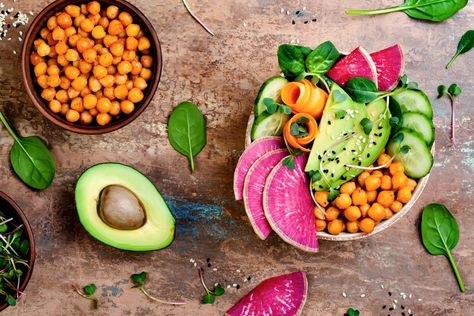
By William Cole, D.C., IFMCPFunctional Medicine Practitioner,
In my functional medicine clinic, blood sugar imbalances are one of the most common signs I see affecting people’s energy, weight, cravings, and brain function. This blood-sugar roller coaster can further throw off your thyroid, insulin, cortisol, and leptin hormones and leave you feeling hangry, fatigued, irritable, and constantly craving sugar. Even the most well-intentioned people can unknowingly perpetuate blood sugar imbalance through the foods that they eat or don’t eat on a regular basis—not to mention the so-called healthy foods that exacerbate these health problems. After years of seeing people struggling through blood sugar imbalance, I want to share the top mistakes people make when trying to restore their blood sugar:
1. Eating too much fruit.
While whole fruits can be a great sweet snack, they still contain sugars like fructose, which can cause problems for those with blood sugar issues. If you are constantly munching on fruit throughout the day, your body still recognizes it as sugar—no matter the source. If only you could sit your body down and explain that it is good sugar! I’m not saying you can’t have fruit at all, but make sure to limit high-fructose fruits such as watermelon, cherries, pears, and apples, and reach for low-fructose fruits like berries and melons. These still provide some great nutritional benefits when consumed in a couple of small servings per day.
2. Consuming the wrong “natural” sweeteners.
With the growing awareness of sugar’s effect on our health, there are more and more options on the market for natural sweeteners. However, not every option is created equal. For example, agave nectar is often touted as the perfect health food alternative to sugar since it is considered low-glycemic (a measurement of how certain foods raise blood sugar). While agave nectar may raise your blood sugar slower than other options, it is still high in fructose, which raises your blood sugar over a longer period, taking a toll on your liver and contributing to fatty liver disease and insulin resistance.
Other natural sweeteners like stevia, unless in its whole-food form, are overly processed and can further contribute to factors like inflammation, which will continue to perpetuate insulin resistance. Some of the best options include 100 percent organic stevia and organic monk fruit extract. Check out my sugar guide for my rankings of the best options if you need a little sweetness in your life. And remember, there is still such a thing as too much of a good thing. Everything in moderation!
3. Not eating enough healthy fats.
When looking to manage blood sugar, healthy fats are necessary to transition your body from being a sugar-burner to a fat-burner. As an energy source, sugar is like kindling to a fire—offering a quick spark but quickly dying out, leaving you in a state of hanger and constantly looking for your next fix. But fat, on the other hand, is like a log to a fire—slow-burning and long-lasting.
Not only do healthy fats keep you fuller for longer, they also help curb any sugar cravings throughout the day by keeping you satisfied. But just like sugar, not all fats are of the same caliber. Polyunsaturated fatty acid (PUFA) oils are found in vegetable, sunflower, corn, canola, and soybean oils and are often marketed as “heart healthy” but are highly processed and oxidize easily, which increases inflammation and exacerbates blood sugar problems. Focus on healthy fats from coconut oil, extra-virgin olive oil, avocados, nuts, seeds, eggs, and clean wild-caught fish like salmon (all of which I utilize in my upcoming book Ketotarian, a plant-based ketogenic food plan to balance blood sugar and crush cravings.
4. Eating all the time.
One of the most common myths around blood sugar is that eating throughout the day can help keep your blood sugar at manageable levels. However, studies have shown that intermittent fasting—going for extended periods of time without food—can do wonders for restoring blood sugar balance. It also helps decrease your hunger hormone ghrelin, which can help you feel full and keep cravings at bay.
5. Eating too many “healthy” grains.
By now we all know that gluten can do a number on our health. Many people think that gluten-free or whole sprouted grains are the better option. However, they still have similar proteins to gluten and are high in amylose sugars that contribute to inflammation, blood sugar spikes, and insulin resistance.
6. Eating too many starchy vegetables.
Carbohydrates of all kinds are quickly converted to glucose by your body. Overloading on starchy vegetables such as sweet potatoes and squash can contribute to unstable blood sugar. Instead, reach for nonstarchy vegetables like broccoli, mushrooms, and dark leafy greens that are filled with important nutrients your body needs for important functions that lower inflammation and regulate detox pathways to help lower blood sugar.
7. Focusing too much on legumes.
Even though legumes contain fiber that helps support the good bacteria in your gut, the cons can outweigh the pros in people with blood sugar issues. The starch content in beans can further throw off blood sugar, and the phytate and lectin proteins can continue to drive inflammation. I often see this as a common problem for people with blood sugar issues who eat a plant-based diet since they typically rely on legumes as a main source of protein.
8. Forgetting about natural medicines.
It’s easy to focus on what not to eat rather than what you should be eating. There are many next-level food medicines that contain powerful compounds that aid in regulating blood sugar. Cinnamon contains a bioflavonoid called proanthocyanidin that has been shownto reduce blood sugar levels and triglycerides by altering insulin-signaling activity in fat cells. Other studies have found that EGCG found in green tea also works to stabilize blood sugar. Take advantage of their benefits by loading up on these throughout your day.
9. Downplaying adaptogens.
I can’t not mention my all-time favorite healing tool, adaptogens. These powerful plant and herb medicines do wonders for helping restore balance in various areas of your health—blood sugar included. Research shows that American ginseng berry juice can help to normalize blood sugar levels and improve glucose tolerance in just 10 days.
The adaptogenic mushroom reishi can also lower blood sugar by down-regulating alpha-glucosidase, the enzyme that works to break down starch into sugar. Try adding both of these into your meal plan for some powerful blood sugar regulation.
10. Only eating for blood sugar.
Your body parts are inextricably linked. While focusing on balancing blood sugar is important, it is essential to also work on areas of your body that contribute to blood sugar problems. In fact, the health of your microbiome is directly related to your blood sugar. Probiotic-rich fermented foods like sauerkraut, kimchi, and kefir can supply your gut with good bacteria to help restore blood sugar balance.
Source: https://www.mindbodygreen.com
Disclaimer: We at Prepare for Change (PFC) bring you information that is not offered by the mainstream news, and therefore may seem controversial. The opinions, views, statements, and/or information we present are not necessarily promoted, endorsed, espoused, or agreed to by Prepare for Change, its leadership Council, members, those who work with PFC, or those who read its content. However, they are hopefully provocative. Please use discernment! Use logical thinking, your own intuition and your own connection with Source, Spirit and Natural Laws to help you determine what is true and what is not. By sharing information and seeding dialogue, it is our goal to raise consciousness and awareness of higher truths to free us from enslavement of the matrix in this material realm.
 EN
EN FR
FR


























For most people who are very conscious about their blood sugar, number 10 is the bell-ringer “Only eating for blood sugar”. It’s not bad at first but once you’ve realized, it is kind of a head-scratcher.
Great article, thank you